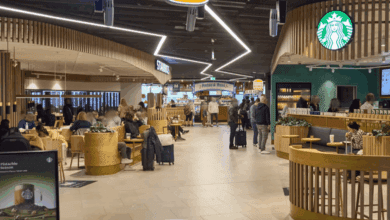
Register to get 1 free article
Reveal the article below by registering for our email newsletter.
Want unlimited access? View Plans
Already have an account? Sign in
Last month the government announced a new immigration policy that provoked a big reaction from our industry. The impact of restricting so-called “lower-skilled” workers from the EU and elsewhere overseas means many businesses are warning of staff shortages.
The government’s terminology is dangerous, not to mention patronising, for a large portion of the hospitality community. I know many who are very highly skilled, particularly in the softer skills such as emotional intelligence, customer care, communication, and so on. The fact is these qualities don’t appear as qualifications on a CV and it’s just not a very well rewarded sector, yet.
While the government said businesses will “have to adjust”, they have stopped short of advising how this is to be achieved. We all know it’s already a tight labour market with low margins so adjusting to a smaller pool of workers will require a step-change for the way many businesses operate. Organisations will no doubt be told – as they are time and time again – to look at improving productivity.
So what is the wider situation and what steps can operators realistically take to help navigate the changing waters?
The perfect storm
Businesses already face the impending increase in the Minimum Wage and National Living Wage next month. The rises range from 4.6% to 6.5% depending on an employee’s age. According to Indeed (at time of writing) the average hourly salary for a barista is £8.67 and for a bartender is £8.57, so the industry is bracing itself for this.
The government’s proposed Good Work Plan is also expected to be implemented this year. Amongst numerous expected changes to UK employment law, the Plan will address the issue of ‘one-sided flexibility’ and require employers to provide employees reasonable notice of the shifts which they’re expected to work or which are cancelled with little warning. Additionally, rules around the calculation of holiday entitlement are set to change as part of the Good Work Plan rollout. Hospitality employers not doing so already will need to accurately calculate and allocate holiday entitlement for every employee.
These factors are compounded by the already unpredictable employment climate faced by hospitality workers as well as the tax burden on the sector with UKHospitality and others calling for reform of business rates.
The government’s announcement of the restriction on employing new EU workers is the latest hurdle to overcome.
A small menu of choices
As a big employer and an engine of the economy, hospitality has built reliance on migrant workers and particularly EU migrant workers. For example, in 2017 Pret a Manger said 1 in 50 applicants were British and 65% of their workforce was from the EU.
How can businesses adjust?
- Increase efficiency. You can automate mundane tasks, optimise shift schedules and take other steps to increase employee retention (reducing onboarding and training costs).
- Modify your service delivery. Less opening hours mean fewer staff are required and more home/workplace delivery might be an option for some. But this will equate to less choice for the consumer and a potentially poorer experience.
- Pay more (in a competitive market). This could help you win the talent war but at the risk of increased prices for the consumer, potentially reducing demand and shrinking your business.
Arguably businesses can better retain staff and afford to pay more if costs are reduced elsewhere, for example through use of technology.
The future: data and automation
Driven by the way we as consumers use websites and apps, the quality, usability and affordability of technology in the hospitality workplace has drastically improved in the past five to 10 years.
In order to positively adjust your business operations this year, consider the following.
Firstly you need to optimise actual labour demand. In other words, businesses must get smarter about planning the exact number of staff they need working at any given time. Too few and you will miss out on potential custom; too many and you will lose profit. Simple software can help overcome this, by linking your sales data and other useful information to inform who you need working, where and when.
Once you know who you need, there are a plethora of apps that can help manage the elements of the employer and employee relationship. Remember, odds are your staff all now carry a smartphone with a whole host of apps, which certainly wasn’t the case a decade ago.
Secondly is the automation of mundane business tasks. Performing manual, repetitive tasks is very rarely the reason someone goes into business. Tools to enhance efficiency are often perceived as expensive, fraught with risk and mostly for very established businesses with good staff retention already. But looking at the ecosystem of simple software and mobile apps now available proves this is no longer the case. There are plenty of affordable tech-led solutions available, for example:
- Employee onboarding can be automated through dedicated software that enables “self-serve” induction and training – for example with workplace health & safety or customer service policies.
- Online reservation or automated booking systems can benefit businesses from restaurants, pubs and bars to hotels and B and Bs.
- eMenus and self-order systems that require no waiting staff to take an order are being adopted by businesses large and small across the hospitality sector.
- Workforce management apps are great for any business that employs staff working shifts. It can save time by auto-generating staffing schedules, tracking employee time and attendance, incorporating team communication and task management, as well as maintaining accurate payroll and staff holiday entitlements – all ultimately freeing up management time.
The clock is ticking
The government’s proposed new immigration system gives small business owners and managers a matter of months to look at the technologies and training that are right for their workforce. Central to the success stories of the future will be improved staff experience that underpins retention and growth.
Offering flexibility in a competitive labour pool, particularly for a younger demographic, will be key. This means, for example, allowing staff to submit their availability to work, swap shifts between themselves for fast manager approval, mark themselves available for more work, and access benefits such as advance salary payment – and all from a mobile device. Businesses that adapt best to the new era of hospitality will be the ones that understand work has to fit into people’s lives.
By David Kelly, general manager at workforce management specialist Deputy







